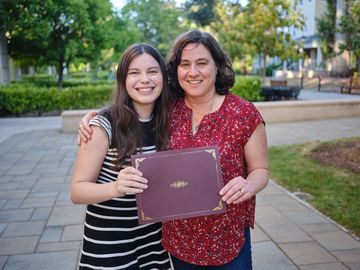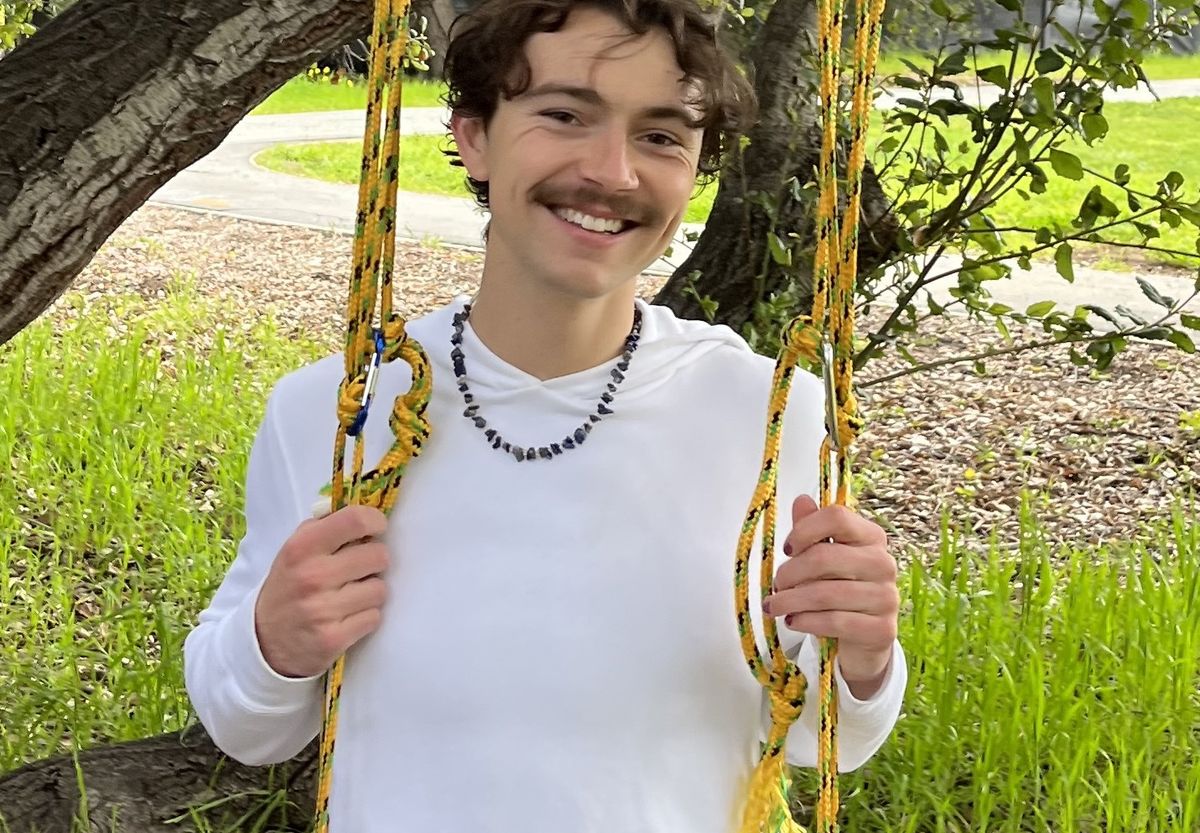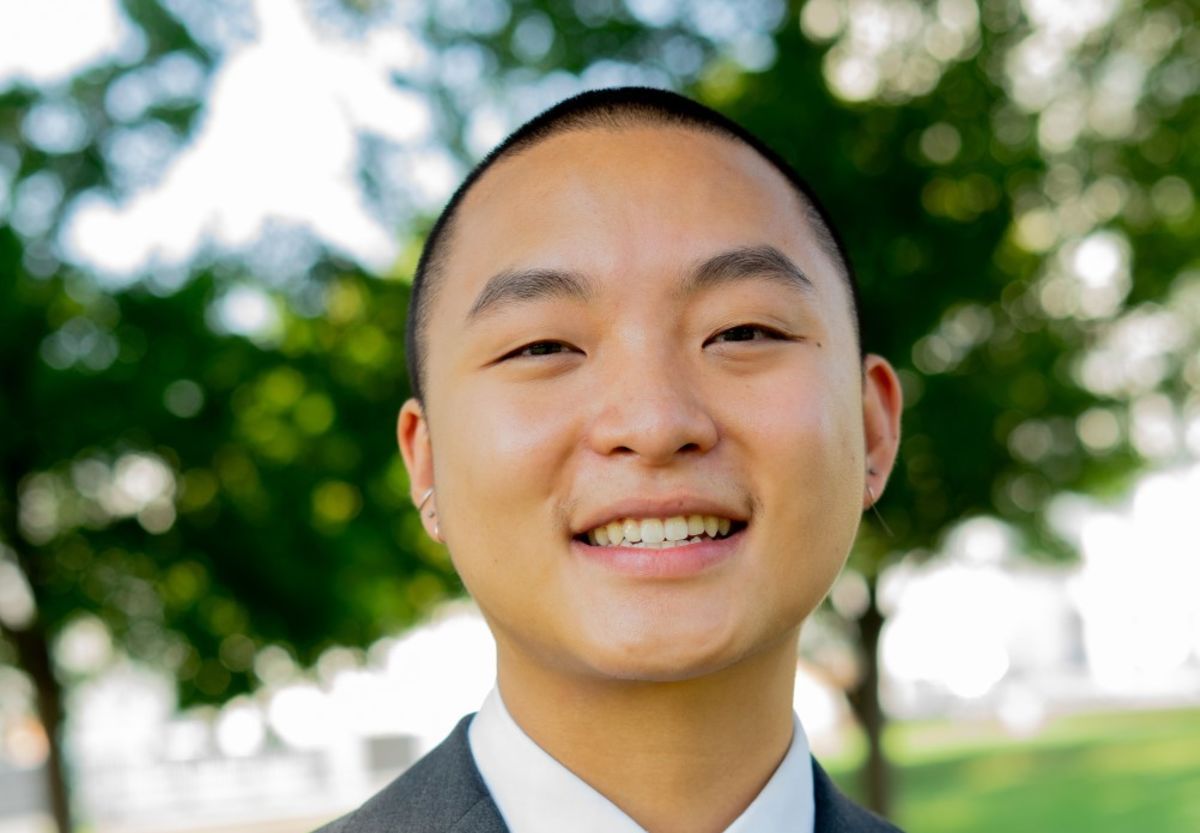Honors

The Honors Program in Feminist, Gender, and Sexuality Studies is available to both our Feminist, Gender, and Sexuality Studies majors and to non-majors.
Honors theses may be comprised of either a research paper or a creative project.
Honors students are advised by Feminist, Gender, and Sexuality Studies Affiliated Faculty. We recommend preparing for one's Honors Project as early as possible by taking courses in your area of interest and by building relationships with potential faculty advisors.
For more information on the requirements for our Honors program, visit our bulletin entry
Applications to the honors program should be submitted to the Student Services Manager at antnguyn [at] stanford.edu (antnguyn)antnguyn [at] stanford.edu (@stanford.edu). Applications consist of a thesis proposal, current transcript, and application form. The application deadline for 2023-2024 is May 10, 2024.
Admission and Requirements for FGSS Majors
Admission
The honors program offers an opportunity to do independent research for a senior thesis. It is open to students with a grade point average (GPA) of 3.5 or better in course work in Feminist, Gender, and Sexuality Studies, or demonstrated academic competence. Students should begin the application process by consulting with the Program Director or the Associate Director as early as possible in the junior year, preferably by the end of Winter Quarter.
During the application process, students design a project in consultation with their proposed thesis advisers and the Associate Director. A proposal describing the project and the number of units to be taken toward the honors directed project must be submitted to the program office for final approval. All projects must have a primary focus on gender or sexuality.
NOTE: FEMGEN 199A, B, C (Honors Seminar) and FEMGEN 105 (Honors Work) units do NOT count towards the 63 units for the major or the 30 units for the minor.
Requirements
- Students enroll for 2-3 units per quarter in FEMGEN 199A, FEMGEN 199B, and FEMGEN 199C Feminist, Gender, and Sexuality Studies Honors Workshop.
- Students in the honors program also enroll for FEMGEN 105 Honors Work with their respective advisers, for an additional 2-3 units each quarter. The combined number of units in 199 and 105 must be 10-15 units over the course of senior year.
- A semifinal draft of the thesis is due early in Spring Quarter of the senior year.
- The final thesis must be submitted by May 15 (or the following Monday should May 15 fall on a weekend). The completed thesis must be submitted with the Thesis Completion Form, which requires the adviser's signature of approval. Creative projects must include a section of critical analysis.
For Majors in Other Departments
Interdisciplinary Honors in Feminist, Gender, and Sexuality Studies for majors in other departments or programs, as distinguished from honors for students pursuing a major in Feminist, Gender, and Sexuality Studies, is intended to complement study in any major. Feminist, Gender, and Sexuality Studies minors who wish to pursue honors in Feminist, Gender, and Sexuality Studies should apply through the process for non-majors.
Admission
The Feminist, Gender, and Sexuality Studies honors program is open to students majoring in any field with an overall GPA of 3.5 or better or demonstrated academic competence.
Students must complete the following with a grade of 'B+' or better:
- Either FEMGEN 101 Introduction to Feminist, Gender, and Sexuality Studies or FEMGEN 103 Feminist and Queer Theories and Methods Across the Disciplines, and two other FGSS courses that relate to their research topic.
Students should begin the application process by consulting with the Program Director or the Associate Director as early as possible in the junior year, preferably by the end of Winter Quarter. During the application process, students design a project in consultation with their proposed thesis advisers and the Associate Director. A proposal describing the project and the number of units to be taken toward the honors directed project must be submitted to the program office for final approval. All projects must have a primary focus on gender or sexuality.
Requirements
- Students enroll for 2-3 units per quarter in FEMGEN 199A, FEMGEN 199B, and FEMGEN 199C Feminist, Gender, and Sexuality Studies Honors Workshop.
- Students in the honors program also enroll for FEMGEN 105 Honors Work with their respective advisers, for an additional 2-3 units each quarter. The combined number of units in 199 and 105 must be 10-15 units over the course of senior year..
- A semifinal draft of the thesis is due early in Spring Quarter of the senior year.
- The final thesis must be submitted by May 15 (or the following Monday should May 15 fall on a weekend). The completed thesis must be submitted with the Thesis Completion Form, which requires the adviser's signature of approval. Creative projects must include a section of critical analysis.
Undergraduate Advising and Research Office
The Undergraduate Advising and Research (UAR) office provides information and guidelines about grant and fellowship support for Honors theses and other undergraduate research projects.

Honors Theses: Research or Creative
Theses
Research Theses
Because FGSS is an interdisciplinary department, our honors theses vary widely in style and method. Some students perform close readings of texts—historical, fictional, visual, and spacial--and situate those readings in the context of a broader academic conversations. Students in the social sciences may conduct research involving human subjects via surveys, interviews, and field observations; these research projects may be qualitative or quantitative or may take a mixed-methods approach. Still other projects are historical or theoretical in nature. Whatever a student's discipline, FGSS offers mentorship and guidance to complete a thesis that is academically viable in both the world of sexuality and gender studies and in the student's home department.
Through managing their thesis projects, students develop skills in research methodology and analysis in addition to expertise in their research topic. Students work closely with their research advisors and FGSS honors cohort. They also attend weekly FGSS workshops and lectures geared toward refining various aspects of their projects. These weekly check-ins facilitate students' exchange of ideas, adherence to a realistic timeline, and self-awareness of their research methodology.
Creative Theses
The creative honors thesis in FGSS offers students from all disciplines the opportunity to build a creative project around an insight, idea, quandary, or mission associated with feminism, gender, and/or sexuality. This project will build on rigorous academic research in the domain of FGSS addressed by the project. Creative theses may be in any medium and must be accompanied by an academic paper that articulates the implicit argument of the project, the academic literature on which the project builds, and the other creative projects with which it is in conversation. Creative thesis writers will work closely with their advisors and with their peers in FGSS to develop their project's intention, form, and scope. Past creative projects have included short story cycles, novellas, poetry, memoir, graphic storytelling, and film.
Students interested in completing a creative honors thesis with FGSS should meet with potential advisors and with FGSS honors faculty to discuss possible structures of their thesis and to develop a plan that would meet FGSS requirements while staying true to the guiding intentions of the project. The proposal submitted to the honors program should be understood as a "pitch" that will necessarily evolve over the course of the honors year. Students will benefit from mentors in FGSS and a tight-knit group of peers who will help to keep the project on track and will challenge the author to grow as a scholar and artist. FGSS encourages creativity and welcomes the opportunity to work with students on projects that exceed the traditional purview of honors theses.
2022-2023 FGSS Honors Thesis Projects

Luke Babbitt
Luke Babbitt (he/they) is a senior pursuing a B.A. in Political Science and an M.S. in Computer Science. Their thesis measures the social motivations behind gender assignment before birth, at birth, and in early childhood. From a sociologist’s perspective, Luke’s research seeks to diagnose gender assignment as a social norm — meaning it is a decision made due to normative expectations and sanctions rather than independent preference. His thesis also analyzes our obsession with the gender binary in early childhood and explores alternative models of parenting. Before we can change gender assignment, we first must understand it. His thesis is for non-binary and transgender youth and adults everywhere.

Kirsten Mettler
Kirsten Mettler is majoring in political science with a minor in feminist, gender, and sexuality studies. She is pursuing a creative thesis, writing a speculative fiction short story collection on the intersection of technological evolution and gender-based violence. Her project is inspired by policy work she conducted at AccessNow and ChildFund International on issues of online privacy, content moderation, social media, gaming, digital harassment, and nonconsensual image sharing. She thanks Michelle Dauber for her mentorship, and her thesis advisor is Sarah Frisch. Mettler will be attending Harvard Law School in the fall.
2021-2022 FGSS Honors Thesis Projects

Muhammad Yusuf Khattak
Muhammad is a senior studying philosophy. His thesis is an effort to draw on phenomenological critiques of artificial intelligence in order to generate an ethical framework for its governance. The thesis first attempts to diagnose the type of reasoning narrow AI systems engage in and how that might be more adept at dealing with certain problems over others. Despite great progress in the field, he aims to argue that the strictly statistics-driven framework embedded in AI has some serious limitations. Muhammad's hope with this paper is to introduce a new perspective to current conversation about ethics and tech, separate from predominant instrumentalist point of view. His advisors are Adrian Daub and Gabrielle Jackson.

Matthew Haide Zheng
Matthew Haide Zheng (he/they pronouns) is a double major in Political Science and Human Biology, also completing the Interdisciplinary Honors program in FGSS. Matthew thesis is an ethnography of LGBTQ+ political power in Washington, D.C. In summer 2020, Matthew conducted over 50 interviews spanning 75+ hours with LGBTQ+ individuals, groups, and organizations in the House of Representatives, the Senate, the White House, government affairs-lobbying firms, the nonprofit sector, and grassroots activists all in the D.C. metropolitan area. Using this ethnographic data, his thesis aims to break novel ground in studies of the LGBTQ+ movement, scholarship on LGBTQ assimilation/radicalism, and the measurement of political power more generally. The project is supported by the Franz Boas Summer Grant from the Department of Anthropology and the Center for Advanced Studies in the Behavioral Sciences. His thesis advisors are Margaret Levi and Sylvia Yanagisako.
| Authors | Publication Year | Title | Publisher |
|---|---|---|---|
| Robert Wilkins | 2017 | Colorful: Using Fiction to Examine American "Trauma Culture" Through an Intersectional Lens | |
| Talia Charme-Zane | 2017 | Freaky Forests, Gay Princes, and Guilty Children: A Queer Reading of Sondheim's Into the Woods | |
| Julia Martins | 2017 | Instant: A Young Adult Novel | |
| Tess Bloch-Horowitz | 2017 | Not Just Child’s Play: Psychological and Legal Constructions of Female Victims of Child Sexual Abuse, 1870-1970 | |
| Emily Pang | 2017 | Raising Resilience: Exploring Mothers' Postpartum Perspectives on Childbirth, Birth Trauma, and Growth | |
| Claire Thompson | 2016 | Cornucopia | |
| Brianne Huntsman | 2016 | Everyone is Welcome!: Analyzing the Relationship Betwen Gender and Makerspaces | |
| Katherine Quiles | 2016 | Exploring the Complicated Relationship Between Identity, Experiences, and Behavior in an Online Context | |
| Emma Steinkellner | 2016 | It Gets Weird: Rethinking Adolescent Comprehensive Sex Ed Through the Graphic Novel | |
| Jasmine Park | 2016 | Public Perception and Coverage in Online Media of Bulimia Nervosa in Korean Society | |
| Brian Leahy | 2016 | Thresholds of Masculinity: Understanding How to Act and Dance "Like a Man” | |
| Nicole Gurtler | 2016 | Wish I Were Here | |
| Beatrice Garrard | 2016 | Yid: Gender, Sexuality, and Abandonment in the Old Country | |
| Julia Purcell | 2015 | Aestheticizing Discomfort: The Feminist Ethic of Selfishness in Lena Dunham’s Girls | |
| Jacob Gonzalez | 2015 | Una revolución dentro de la Revolución: Women And Martial Metaphor in the Cuban Literacy Campaign |